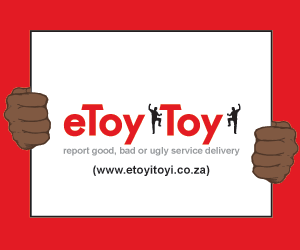How can I help the Rhinos?
1. Get a Rhino Bag from Woolworths and Isikhwama
2. Get a bracelet from Rhino Force or
3. adopt a Rhino from WWF.
4. Help Save the Rhino International
5. Get a my Planet Card from My school to support – “EWT MyPlanet Rhino Fund”
httpv://www.youtube.com/watch?v=96LTAkDItIY&feature=pyv
According to WWF: South Africa has lost at least 287 rhinos so far in 2011 alone, including 16 or more critically endangered black rhinos. Most of the poaching has been in the world famous Kruger National Park, but privately owned rhinos have been targeted too.
More than 165 people have been arrested this year, and some convicted poachers have received up to 12 years in prison.
WWF’s African rhino programme manager, Dr Joseph Okori, says: “South African authorities are taking rhino poaching very seriously and are beginning to dismantle the sophisticated criminal gangs behind the killings.
According to Rhino Force
SANParks and the University of Pretoria are joining forces in the fight against rhino poaching. Using state-of-the-art technology, they hope to gather the DNA profiles of all of South Africa’s 22 000 rhinos in order to increase the successful prosecution of Rhino Poachers.
SANParks, who oversees South Africa’s national parks, has received DNA sampling kits from the university’s veterinary genetics laboratory; which developed the kit with the help of the police forensics laboratory. Over 2000 DNA profiles, taken from poached rhinos and trophies, have already been processed and stored at the university’s lab. With the distribution of these kits, organisers hope to grow the database to include both the DNA of rhinos across South Africa, Botswana, Namibia and Zimbabwe.
We desperately need your help
Save the Rhino International and International Rhino Foundation are currently working with the four countries’ leading conservationists, country representatives, NGOs and wildlife authorities to identify strategies to combat the poaching crisis and to asses what the teams on the ground need to protect the rhino. The funds raised from this appeal will be used to meet the needs identified during this consultation period. Examples of how the funds raised may be used below:
Equipment: Microchips / microchip scanners, track sticks, basic field ranger equipment, crime scene equipment, DNA collection kits, tags and data loggers, vehicles, radios, collars for WRSsatellite, GPSs, metal detectors, cameras, night-vision and thermal imaging equipment
Training: Footprint-lifting and scene-of-the-crime photography; scene-of-the-crime training, DNA collection, specialised field ranger recruitment techniques and standards, basic field ranger training, in-service training, investigations and intelligence
Liaison: Protocol documents, rhino coordinator, risk assessments, local wildlife crime working groups
Field activity: ear-notching, translocations, stockpile management, staff selection, flying time, use of dogs, substance detectors, dehorning
Research and development: Transmitters, revision of legislation, DNA analysis, reward funds, information management
source: Save the Rhino International



















Connect
Connect with us on the following social media platforms.